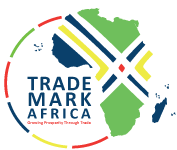Regional staple food trade is vital to East Africa’s economic growth and food security. Significant efforts have been made to facilitate intra-regional trade, including infrastructure development, standards harmonization, and the
simplification of trade through simplified trade regimes (STRs) and One-Stop Border Posts (OSBPs). Despite this progress, significant challenges hinder the full utilization of trade opportunities, impacting rural livelihoods, regional
economies, job creation, and food security.
To address these challenges, the Eastern Africa Grain Council (EAGC) and TradeMark Africa (TMA), through the Economic Recovery and Reform Activity program, organized a two-day East Africa Staples Food Trade Public-Private Dialogue and Business-to-Business Forum in Nairobi, Kenya. Attended by
over180 delegates from eight countries, including Burundi, DR Congo, Kenya, Malawi, Rwanda, Tanzania, Uganda, and Zambia, the forum deliberated the current staple food trade landscape, identified barriers, and proposed priority policy and programmatic interventions.
Participants identified key challenges impeding cross-border food trade, such as i) inefficient production systems, ii) shortages of storage facilities, iii) high post-harvest losses, iv) informal and unstructured trade, and v) data and information gaps, amongst others.
To address these issues, participants proposed priority interventions encompassing various aspects crucial for enhancing cross-border grain staple food trade in East Africa, including
- Policy advocacy;
- Structured logistics management;
- Capacity building for inspectors and regulatory bodies;
- Harmonization of domestic taxes on farm inputs and moving towards a common currency in the East African Community (EAC);
- Establishing structures for seed, commodity, and product traceability;
- Supporting social innovations to help more women and youth engage more productively in agribusiness; and
- Understanding and addressing the geopolitical economy to ensure alignment of political goodwill with interventions and programs that support trade.
The forum achieved significant outcomes with 71 new supply contracts, totaling 677,541 metric tons of grains and pulses, valued at US$ 360 million; several small and medium-sized enterprises (SMEs) established new market contacts across the participating countries, fostering growth and collaboration.
The event’s outcomes will catalyze reforms and interventions to enhance EAC’s production and trade in food staples. The interventions will benefit farmers, traders, and consumers by providing better market access, increased trade opportunities, and enhanced regional food security.

